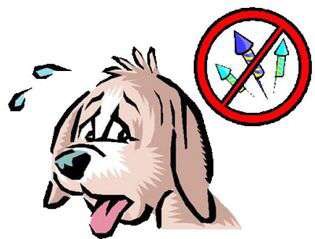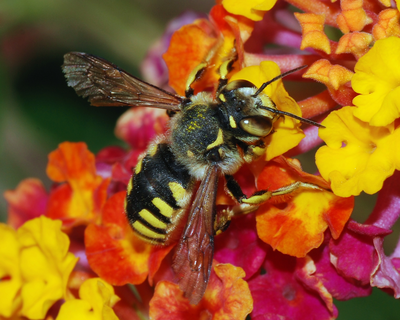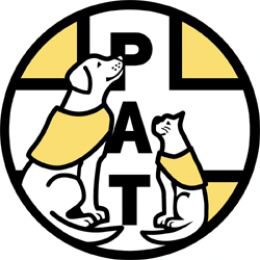|
In the UK many animal rescue and welfare charities offer pets on a temporary, foster basis as well as for adoption into a permanent home. The rules tend to be much the same for adoption as for fostering in that:-
Find out as much history as you can about your prospective foster pet to ensure that you are well suited. Make sure that you are fully aware of any cost implications. At least one of our local dog rescue charities contributes towards the cost of a foster pet. In one case all the vets bills are paid for, whilst the other charity pays for everything including food for the dog. This may sound expensive for the charity but it is cheaper, and better for the animal, than keeping it in kennels. When we took a foster dog into our home the initial cost of spaying, after her first season, was paid for by the charity and that was all. However we never really asked for anything else and I suppose, as with most things in this life, it is up for negotiation. One thing though that I would like to mention is prepare yourself for separation and always keep in your mind that your foster pet is temporary. More than ten years down the road Jessie our foster dog is still with us and I guess she is going nowhere. If I could have been sure that a good home was found for her when she was young I would have willingly parted company with her, however my husband within a short time became so attached to Jess that she was given permanent fixture status. Fostering an animal, especially if you are not able to re-home on a permanent basis, is very worthwhile and rewarding. Usually both the family and the animal benefit from the experience. Remember though that some animals in desperate need of a new home may have many problems. Our Jess had been very ill-treated despite her young year when she came to us. Consequently she was a very naughty dog for a few months and very hard work. Suffice to say she is not now but those first few months were a testing time for all. Contact a local charity to discuss the options for fostering an animal. It may be that you will be accepted as a regular foster owner. There is also the option to foster an animal you may never actually meet simply on a monetary basis. Some animal sanctuaries advertise for long distance fosterers who will supply the money needed for the animal to survive. With regular small payments it is possible to contribute vitally to an animal's well-being. Foster certificates are on sale online and make great gifts for Christmas and Birthdays. Check out 'Sponsor' a rescued Dog at Hillside http://www.onewomansomanyblogs.com/animals/when-your-dog-goes-blind-jessies-story
0 Comments
 Dogs may be man's best friend in many ways but, as with all things in this life, there are exceptions to the rule; we should never generalise anyway. Dogs may be man's best friend in many ways but, as with all things in this life, there are exceptions to the rule; we should never generalise anyway. Ever wondered though how dog's became known as man's best friend? When little Fifi rests gently on your lap, it is so easy to forget that this cute dog is related to the wolf family. All the domesticated dogs around today, no matter what breed they are, have their origins in the Wolf family. Their closest ancestors are the coyote, jackal and wolf family of animals. Dogs also have a more distant link to other wild dogs and foxes. The early dogs gathered together to hunt in packs. This was their best chance of survival and it worked. As mankind developed these packs of dogs, others were attracted to the areas where Man had set up camp. Such camps or settlements would include a few families and the dogs were able to scavenge for extra food and warmth. It is thought that a small number of cubs may have been brought into the settlement and raised by the people who lived there. This could have been as the cubs were orphaned. Whatever happened, the relationship began. These semi wild dogs were useful in assisting with hunting for live food, eating discarded food left around the area and guarding the settlement. It is also possible that when food was scarce these dogs became food themselves for their human companions. Dogs evolved over time and man played a part. Dogs were bred to satisfy the requirements of the settlement. With time, this selective breeding led to distinct breeds. Therefore, it would seem that man has had a distinct relationship with dogs for many years. Dogs have been companions and working animals for centuries. Of course, over the years this relationship has changed somewhat, and dogs have adapted. With man less of a hunter-gatherer these days and people in general enjoying a more sedentary lifestyle, dogs are kept more as a pet than as a working animal. However, there are still working dogs such as sheep dogs which are usually Collies, and guard-dogs which may be Alsatians or as they are also known German Shepherd dogs. Man's fascination and love of his four-legged friend, his dog, has meant that there are now kennel clubs around the world, dog shows and various thoroughbred or pedigree animals. Unfortunately, pedigree dogs often have associated health problems, which are bred into the particular breed, due to kennel club demands. Unbelievably there are around seven or eight hundred different breeds of dog around the world. Some are specific to one particular country or region and so may be unheard off in say the USA or the UK. Until recent years, the UK had strict regulations regarding the movement of dogs from other countries, in order to prevent the spread of rabies to its shores. These measures worked and the UK remained rabies free. Currently these regulations have been relaxed a little and it is possible for dogs in the UK to be examined and passed fit for travel. They actually are given a passport, which contains proof of their fitness. Much as people love their dogs, many animals are abused and neglected around the world. Sometimes this is due to ignorance but, more often than not, it is just cruelty. Dogs are still eaten in some countries and, in such places, are seldom euthanized humanely first. The struggle goes on to stop such practices. Check out the World Wildlife Fund for information on how you can help. With neglect of dogs on the increase, there are always far too many dogs in rescue centres, waiting to be re-homed. These dogs often make lovely pets but they may have poor health over the years, depending on the maltreatment, which they have received in the past. Overall dogs make great companions. They are loyal, obedient once trained, fun, will help guard and protect you and your home and will make a faithful friend for many years. Is it any wonder that dogs are called, Man's Best Friend? Personal experiences With six dogs over 40 plus years this blogger has learned one simple fact and that is dogs love to please. All of my dogs, except for one, have been rescued from traumatic situations yet all still wanted nothing more than to please their owner. The cruel acts meted out on these dear animals have varied from cigarette burns, abandonment, starvation and general cruelty to downright neglect. However, each dog's overwhelming desire, once we had got to know each other, was to please us. A dog's eyes are constantly upon you assessing your mood and trying to anticipate your next move. However, this is never done in a suffocating way, as a person might. It is always on the human being's terms. Dogs do not argue back but blindly follow your lead. In the training stage this may not always be true but, if you become the pack leader, your dog will follow you. On the whole dogs are not very demanding creatures and simply require grooming, fresh water, food, exercise, a home and love. Whether, in the case of my dogs, this desire to please be because they were just so happy to get a good home at last, or the 'man's best friend' syndrome, I do not know. I do wonder sometimes at a dog's loyalty to a cruel owner and why the dog just doesn't scarper at the first opportunity. One of my dogs was regularly thrown, quite literally, through the glass windows of the home, along with the furniture, when her horrible, previous owners were having an argument. To this day I do not really know why she just did not take a risk and run off once she was outside. I suppose it was fear of the unknown or perhaps blind loyalty to the owner. This loyalty in a dog is something which some people do not like, I know. Cat owners, and cat lovers, will often see this doggie trait as a failing, especially by comparison to a cat's independent personality. One thing with most dogs though is, that they are very faithful creatures, however misguided this loyalty may be at times. Dogs are obviously not your best friend in lots of ways, unless you are a sad individual with no people and human friends in your life but they are loyal, reliable, accept you, warts and all, will easily forgive your ups and downs and will try to comfort you when they can. As in life, in general, not all dogs will be the same but usually you will find that a dog is yours, come what may, providing that you treat it right. As with people, dogs like friends do occasionally let you down unfortunately. http://www.mans-best-friend.org.uk/history-evolution-dogs.htm |
Archives
September 2018
Categories
All
|








 RSS Feed
RSS Feed




